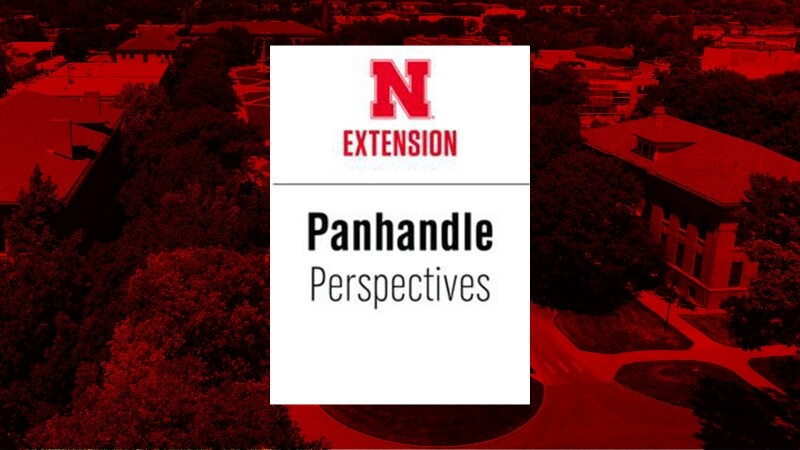
Lincoln, Neb. —Five student interns who spent the summer of 2020 working in Nebraska Extension offices have returned to class in college and high school, following a summer in which they get a taste of careers in Extension serving local clientele at county-based offices.
In the Cheyenne County office, Jocelyn Pohl of Bridgeport worked under the supervision of 4-H Youth Development Educator Laura Narjes. In Dawes County, Miakayla Koerber worked with Educator Erin Kampbell. In Sioux County, three interns worked under the supervision of Extension Educator and Unit Leader Jenny Nixon: Claire Buhr, a senior at Mount Marty College, and Emily Parker and Ziphora Starkey, both seniors at Sioux County High School at Harrison.
Nebraska Extension sponsors a summer internship program in which the state office shares the costs of hiring interns for 12 weeks during the summer with local offices. The intent is to help the students gain teaching experience, earn college credit, and work throughout the state, since Nebraska Extension has offices in almost every county in the state, including both urban and rural areas.
Extension interns have an opportunity to get some teaching experience as they plan, execute, and evaluate their own educational program that meets the needs of the community. In the process, they develop a variety of communication skills necessary for leadership in teaching, media presentations, recruitment, and personal interactions with diverse audiences.
Internships are a valuable part of the educational experience for these young people, says Rob Eirich, coordinator for Nebraska Extension’s Engagement Zone that includes the Panhandle.
“Nebraska Extension wants to allow these interns to experience Extension programming in hopes of seeing them applying for positions in the future. These intern opportunities show how Extension reaches Nebraskans across the state through engagement at the local level.”
The interns helped teach 4-H classes and organize county fairs, in addition to many other activities that are part of everyday business at a county-based extension office.
Pohl, who took her 4-H projects to the Morrill County Fair while growing up on the family farm near Bridgeport, is pursuing a degree in agricultural education at the University of Nebraska-Lincoln. After graduation she hopes to become a high-school ag ed teacher and FFA adviser.
She heard about the internship last winter while looking for a summer experience related to her college studies and wondered what it would be like to work in a county extension office, having loved her own fair experience as a youth.
During her internship Pohl concentrated on 4-H programs. She distributed take-home kits, which replaced in-person workshops during the pandemic. She also worked from home for the first three weeks, creating lesson plans or ideas from 4-H project books for next year’s Cool Kids program.
She also helped organize the Cheyenne County fair, including collecting and organizing paperwork for livestock exhibitors, creating spreadsheets, receiving entry forms, printing entry cards, and other behind-the-scenes work.
Pohl said her internship experience showed her how different each county fair can be, but also some of the similarities. “Everyone just still comes together and loves showing and you can see the passion out there in the kids exhibiting their statics or their livestock.”
“I learned a lot about what Extension does,” she said. “Being a person who showed at fair, all I ever saw was them (Extension) putting on the fair. I never knew what else they did or how much it entailed in the background.”
The four interns in the northern Panhandle also spend a lot of time working with youth. They started in mid-May, as Extension was returning to some face-to-face events for the first time since the pandemic caused a switch to online alternatives or postponement a couple months earlier.
Each intern got some teaching experience, such as developing online food class or helping with rocketry workshops. Each intern also worked a variety of other Extension events, especially fair.
According to Nixon, the pandemic prompted them to give serious thought to the logistics of carrying out face-to-face teaching events. She had them mark off 6 feet in the office, set up tables, and wear masks. “They had to think through the process of working in an office setting and conducting an event with directed health measures in place.”
Many county fairs in 2020 were conducted in ways that resembled normal times, with special logistics to protect against the spread of COVID-19. In some cases non-4-H events were canceled. The interns helped work out ways to conduct 4-H events in a safe manner.
One example was the interviewing process for judging clothing or static entries. “We ended up flipping our table the long way, so judge and entrant sat at opposite ends of a 6-foot table. And we were able to do our interview judging sort of like normal.”
They also put space in the schedule, timing the entries and interviews so only a few families came to the judging event at a time.
In addition to the experience in teaching and organizing events, Nixon said, one valuable result of the internships was what the students gained from interacting with each other while in the office together. “On Mondays they worked together, and spent a lot of time sharing.” For example, Buhr shared what college life was like with the others who were still in high school, an experience that was both fun and valuable for the high-schoolers.
Nixon said she enjoyed supporting the kids locally. In addition, having temporary help from interns allowed the county Extension office to carry out 4-H programs without a full-time 4-H staffer in the office due to budget constraints.
“They all did very well and were easy to work with, did it to the best of their ability.”







